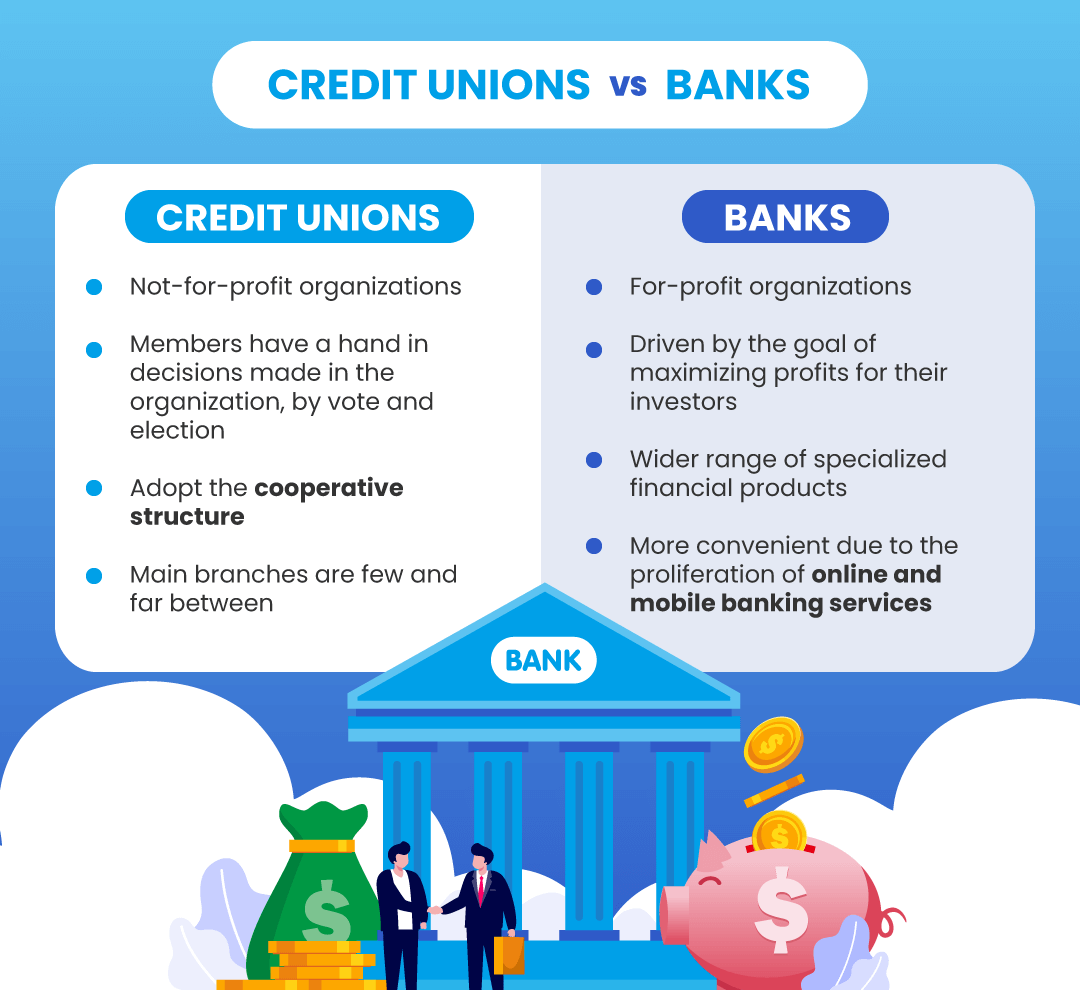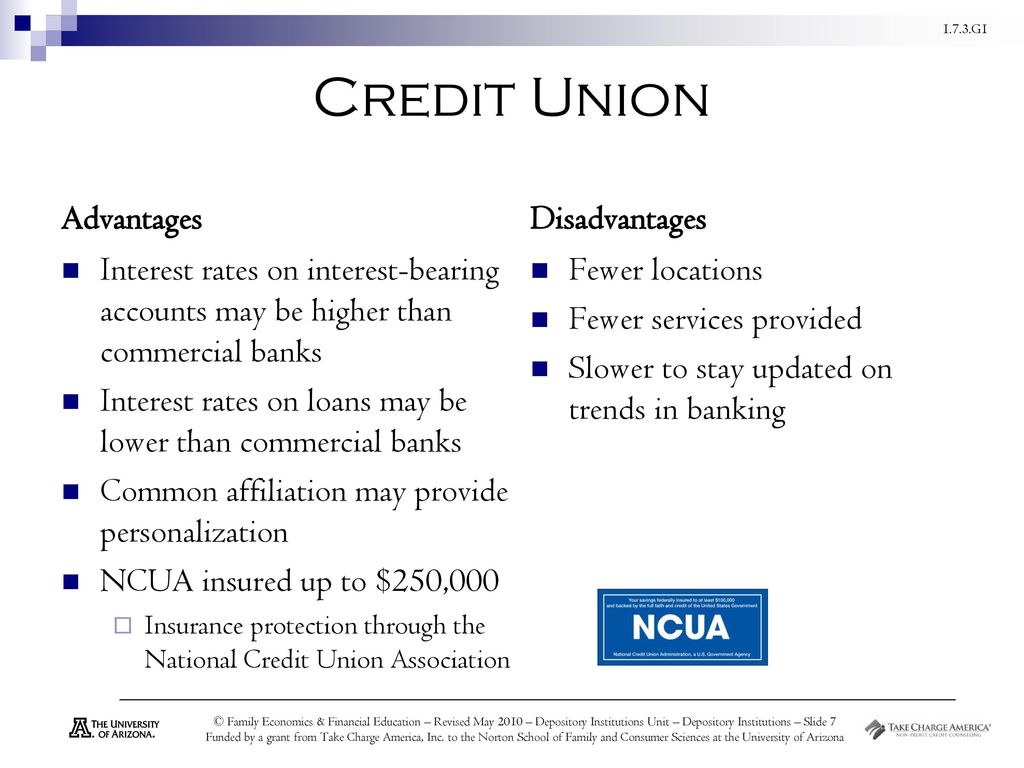Finest Credit Union in Cheyenne Wyoming: Tailored Financial Services for You
Finest Credit Union in Cheyenne Wyoming: Tailored Financial Services for You
Blog Article
Opening the Perks of Debt Unions: Your Guide
In the realm of banks, lending institution stand as a distinct and usually underexplored option for those looking for a more personalized approach to banking. As we look into the details of credit score unions, a globe of benefits and possibilities unfolds, supplying a glimpse into an economic landscape where neighborhood worths and member-focused solutions take facility phase. From their humble beginnings to their contemporary impact, understanding the significance of credit history unions could possibly reshape the method you view and manage your finances.

History of Credit Report Unions
Lending institution have a rich history rooted in the cooperative movement, going back to the 19th century. The principle of lending institution became an action to the financial needs of individuals who were underserved by typical banks. Friedrich Wilhelm Raiffeisen, a German mayor, is commonly credited with establishing the very first contemporary credit rating union in the mid-1800s (Wyoming Credit Unions). Raiffeisen developed cooperative loaning cultures to help farmers and country neighborhoods gain access to cost effective credit history and leave the clutches of usurious loan providers.
The idea of people integrating to pool their sources and offer monetary aid to each various other spread quickly throughout Europe and later on to The United States and Canada. In 1909, the initial lending institution in the USA was developed in New Hampshire, noting the beginning of a brand-new period in community-focused financial. Ever since, cooperative credit union have proceeded to focus on the financial well-being of their participants over profit, embodying the cooperative principles of self-help, self-responsibility, democracy, equal rights, equity, and solidarity.
Membership Qualification Requirements
Having developed a structure rooted in participating concepts and community-focused banking, cooperative credit union keep details subscription eligibility requirements to make sure placement with their core worths and purposes. These criteria often focus on an usual bond shared by possible members, which might include factors such as geographical area, employer, organizational affiliation, or subscription in a certain community or organization. By calling for members to fulfill certain qualification requirements, credit history unions intend to cultivate a feeling of belonging and shared purpose amongst their participants, reinforcing the cooperative nature of these banks.
Along with common bonds, some cooperative credit union might additionally extend subscription qualification to member of the family of existing participants or individuals who stay in the same house. This inclusivity aids cooperative credit union expand their reach while still remaining real to their community-oriented ethos. By preserving transparent and clear membership criteria, credit score unions can make sure that their members are actively taken part in supporting the participating values and objectives of the institution.
Financial Products and Services
When considering the range of offerings offered, credit score unions give a varied range of economic items and services customized to meet the special requirements of their participants. Participants typically profit from personalized consumer service, as credit score unions prioritize building solid connections with those they serve.
In addition, credit score more tips here unions often supply monetary education and counseling to aid participants boost their monetary literacy and make notified decisions. Many cooperative credit union likewise take part in common branching networks, permitting participants to access their accounts at a range of places across the country. On the whole, the series of financial services and products provided by credit history unions underscores their dedication to fulfilling the varied requirements of their members while prioritizing their monetary health.

Benefits Over Typical Financial Institutions
Demonstrating a distinct approach to financial solutions, credit score unions provide numerous advantages over standard banks. One crucial advantage is that cooperative credit union are additional hints normally member-owned, indicating that earnings are reinvested right into the company to give better rates and reduced costs for participants. This cooperative framework usually leads to a lot more individualized client service, as cooperative credit union prioritize member contentment over making best use of revenues. Additionally, cooperative credit union are recognized for their affordable rate of interest on cost savings accounts, fundings, and bank card. This can result in higher returns for members who borrow or conserve money through the credit rating union compared to standard banks.
Additionally, cooperative credit union tend to have a strong concentrate on economic education and learning and neighborhood assistance. They often give workshops and sources to assist participants enhance their monetary literacy and make audio cash administration decisions (Credit Union Cheyenne). By cultivating a sense of neighborhood and shared goals, cooperative credit union can produce a more encouraging and inclusive banking setting for their participants
Area Participation and Social Influence

Furthermore, credit rating unions typically partner with local companies and charities to sustain numerous social causes such as cost effective housing, education and learning, and medical care. By teaming up with these entities, debt unions can intensify their social impact and address essential problems affecting their communities. This collective technique not just benefits those in requirement a fantastic read however likewise reinforces the social fabric of the neighborhood by cultivating a sense of unity and support among its participants. Basically, cooperative credit union act as drivers for positive adjustment, driving neighborhood development and social progression via their active participation and impactful efforts.
Final Thought
To conclude, lending institution have a rich history rooted in area and teamwork, offering a varied variety of monetary products and solutions with competitive prices and customized customer solution. They prioritize the economic wellness of their participants over earnings, cultivating a feeling of belonging and giving monetary education and learning. By actively participating in social influence efforts, lending institution produce a comprehensive and encouraging banking setting that makes a positive difference in both private lives and areas.
Friedrich Wilhelm Raiffeisen, a German mayor, is typically credited with founding the first contemporary debt union in the mid-1800s - Credit Union in Cheyenne Wyoming. By requiring participants to satisfy specific eligibility requirements, debt unions intend to cultivate a feeling of belonging and shared purpose amongst their members, reinforcing the cooperative nature of these financial institutions
Additionally, credit score unions regularly supply economic education and therapy to help members enhance their economic literacy and make notified choices. In general, the variety of economic items and solutions provided by credit score unions underscores their commitment to satisfying the varied requirements of their participants while prioritizing their financial well-being.
Furthermore, credit rating unions are recognized for their competitive rate of interest rates on cost savings accounts, loans, and credit rating cards.
Report this page